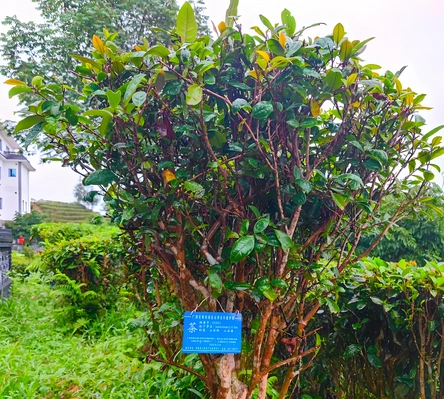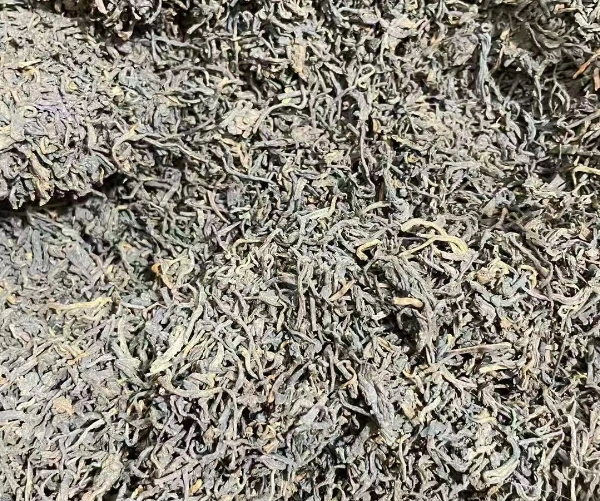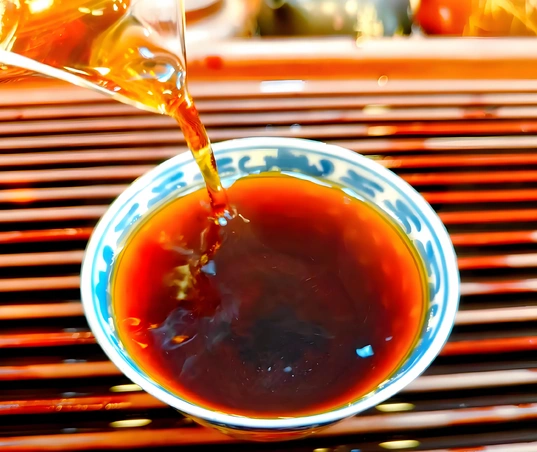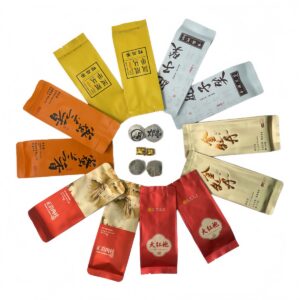Dark tea for health opens a gateway to centuries of tradition and modern wellness, inviting you to sip a warm, amber elixir that soothes the senses and revitalizes your body. Imagine lifting a small clay cup to your lips, feeling its comforting warmth seep into your palms as fragrant steam rises—notes of roasted malt, forest floor moss, and gentle honeyed sweetness swirling in the air. With the first taste, a velvety texture coats your tongue, releasing layers of earthy depth and a whisper of caramel. This sensory experience is just the beginning: dark tea for health delivers potent fermented polyphenols, theabrownins, and beneficial microbes that work in harmony to support gut health, boost immunity, aid digestion, and even help manage cholesterol.
In the following guide, we’ll explore how dark tea’s unique post-fermentation process creates a powerhouse beverage, reveal the science behind its core benefits—dark tea for gut health, dark tea for immune boosting, dark tea digestion, and dark tea for cholesterol management—and share practical tips for brewing, timing, and selecting the finest leaves. Prepare to embrace a simple daily ritual that can transform your well-being from the inside out.

What Is Dark Tea and Why It Matters for Health
Defining Dark Tea vs. Oolong Tea
Dark tea—often referred to as post-fermented tea—includes varieties such as Pu Erh, Liubao, and Anhua. Unlike unoxidized green tea or partially oxidized oolong tea (think Tieguanyin’s floral whispers or Da Hong Pao’s stone-fruit warmth), dark tea undergoes a secondary microbial fermentation stage. Freshly plucked leaves are piled, moistened, and carefully aged, sometimes for years, allowing beneficial microbes to transform simple catechins into complex theabrownins. This process yields leaf cakes and loose-leaf teas with deep-brown liquor, rich aromas of damp earth and malt, and a smooth, lingering mouthfeel. While oolong tea supports health through catechins and theaflavins, dark tea for health stands out by offering fermentation-derived compounds that uniquely nourish your microbiome, fortify your intestinal barrier, and sustain broad systemic benefits.
Traditional Origins and Modern Rediscovery
The story of dark tea traces back to the ancient trade routes of Yunnan and Guangxi provinces, where tea bricks traveled the Silk Road to nourish caravans. Centuries later, modern science has rediscovered these legends, validating dark tea’s health claims. Researchers now confirm what tea masters long knew: time and microbes co-create a living brew brimming with antioxidants, prebiotics, and metabolic modulators. Today, dark tea is experiencing a renaissance in wellness circles, prized by health enthusiasts seeking a flavorful, holistic beverage for daily vitality.
Key Bioactive Compounds in Dark Tea
Fermentation-Derived Polyphenols and Theabrownins
At the heart of dark tea for health are theabrownins—unique brown-colored polymers formed as tea catechins polymerize during fermentation. These molecules exhibit potent antioxidant and anti-inflammatory effects. Laboratory studies show theabrownins protect cellular membranes from oxidative damage, scavenge free radicals, and inhibit pro-inflammatory pathways. Every sip of dark tea delivers these protective antioxidants directly to your gut and bloodstream, helping to shield tissues from age-related stress.
Prebiotic Fibers and Beneficial Microbes
Beyond polyphenols, dark tea retains soluble plant fibers and live microbial metabolites acting as prebiotics. These compounds feed beneficial gut bacteria—Bifidobacterium and Lactobacillus species—fostering a balanced microbiome. As microbes ferment these fibers, they produce short-chain fatty acids (SCFAs) like butyrate, which nourish colon cells, strengthen the intestinal barrier, and reduce localized inflammation. Together, these fermentation-derived nutrients underscore why dark tea for health excels at promoting digestive harmony and immune resilience.
Health Benefits of Dark Tea
Dark Tea for Gut Health
Your gut microbiome orchestrates digestion, immunity, and even mood regulation. Dark tea for health fortifies this ecosystem by delivering prebiotic fibers and fermented polyphenols that inhibit harmful bacteria while nurturing beneficial strains. In a recent human trial, participants consuming two cups of Pu Erh daily saw a 30% increase in Bifidobacterium populations and a 20% decrease in Enterobacteriaceae, accompanied by fewer bloating episodes and improved stool consistency. By integrating dark tea for gut health into your routine, you cultivate a thriving inner garden that supports overall vitality.
Dark Tea for Immune Boosting
Approximately 70% of immune cells reside in the gut-associated lymphoid tissue (GALT), underscoring the gut-immune axis connection. When your intestinal barrier is strong and your microbiome balanced, your immune system can focus on real threats rather than chronic low-grade inflammation. Fermented polyphenols in dark tea modulate cytokine production, boosting anti-inflammatory IL-10 and tempering pro-inflammatory TNF-α. Animal studies reveal that dark tea extracts enhance macrophage activity and accelerate wound healing, suggesting dark tea for immune boosting can prime your defenses naturally.
Dark Tea Digestion Support
Smooth digestion is foundational to health. Dark tea’s theabrownins and mild caffeine content stimulate digestive enzymes—amylase and lipase—accelerating nutrient breakdown. In one crossover study, subjects who consumed dark tea with a high-fat meal exhibited a 15% reduction in postprandial triglyceride peaks, indicating more efficient fat emulsification. Habitual sips of dark tea digestion aid in preventing bloating, discomfort, and sluggishness, guiding nutrients swiftly into your system for sustained energy.
Dark Tea for Cholesterol Management
Elevated LDL cholesterol poses cardiovascular risks. Research indicates that daily consumption of dark tea can lower total cholesterol and LDL by 5–10% over 8–12 weeks. Theabrownins appear to inhibit cholesterol absorption in the gut and upregulate hepatic LDL receptor activity, facilitating clearance from the bloodstream. Combined with heart-healthy lifestyle choices, dark tea for cholesterol management can be a flavorful companion in supporting heart health and metabolic balance.

Complementary Benefits and Comparisons
Dark Tea vs. Oolong Tea for Wellness
Both dark tea and oolong tea deliver health-promoting polyphenols, yet their profiles differ. Oolong’s partial oxidation yields catechins and theaflavins, prized for metabolic and antioxidant effects. It offers a bright, floral character and mild caffeine. Dark tea’s extended fermentation creates deeper theabrownins, robust flavor, and distinctive digestive and immune support. To harness full benefits, consider starting your day with an uplifting oolong cup, then transition to dark tea after meals for targeted dark tea digestion and systemic support.
Role in Weight Management and Metabolism
Gut health, immunity, digestion, and cholesterol control all feed into weight management. By enhancing fat oxidation, regulating appetite through stabilized blood sugar, and supporting lean microbial populations, dark tea for health complements dark tea in weight loss plans. Its mild thermogenic effect from caffeine and theanine synergy fuels workouts and curbs cravings, while fermented polyphenols slow starch and fat absorption—helping you maintain a balanced calorie equation without deprivation.
How to Incorporate Dark Tea into Your Routine
Best Times to Drink for Maximum Impact
- Morning Kickstart: Begin with a Western-style steep (5 g leaves in 250 mL at 95°C for 3–4 minutes) after breakfast to awaken metabolism.
- Post-Meal Support: Enjoy dark tea digestion 10–15 minutes after lunch to aid fat processing and prevent midday sluggishness.
- Afternoon Reset: A shorter Gongfu-style infusion around 3 PM revitalizes energy and supports dark tea for gut health before evening.
Limit intake after 6 PM if caffeine disrupts sleep, or shorten infusion times (30–60 seconds) to reduce caffeine extraction.
Brewing Techniques: Western vs. Gongfu Style
- Western Method: Convenient—steep 5–6 g leaves in 250 mL water for 3–4 minutes; yields a bold, comforting brew.
- Gongfu Style: Ritualistic—use 6–8 g leaves in 100–150 mL water, rinse 5–8 seconds, then steep 20–30 seconds, adding 5–10 seconds per infusion. Offers a sensory voyage as aromas and flavors evolve over 6–8 steeps.
Both methods extract health-boosting polyphenols; choose based on time and mood.

🔗 To learn more about how to make tea, check out Tanbiwencha’s YouTube video explaining how to make tea.
Selecting and Storing Quality Dark Tea
Identifying Authentic Varieties
Look for origin-specific labels—Yunnan Sheng or Shu Pu Erh, Guangxi Liubao, Hunan Anhua. Quality leaves are glossy, intact, and deep-brown with a sweet, earthy aroma. Premium producers provide harvest dates, fermentation methods, and aging details. Avoid musty or chemical odors, which signal poor storage.
Storage Tips to Preserve Health Benefits
Store tea in a cool (20–25°C), moderately humid (60–70%) environment, using breathable containers like clay jars or paper wrappers. Keep away from direct sunlight and strong odors. Periodically (each 3–6 months) unwrap and inspect for mold or dryness to ensure ongoing fermentation and retention of dark tea for health compounds.
FAQs on Dark Tea for Health
How Much Should I Drink Daily?
Aim for 2–3 cups (500–750 mL) daily. Consistency is key—spread intake across morning, midday, and afternoon for balanced support. If you’re sensitive to caffeine, shorten steep times or choose lighter-aged teas.
Can Dark Tea Replace Supplements?
While dark tea for health provides a broad spectrum of antioxidants, prebiotics, and metabolic aids, it should complement—not replace—targeted supplements (e.g., vitamin D, probiotics) when specific therapeutic levels are needed. Combine dark tea with a balanced diet and, if needed, professional-grade supplements for a holistic approach.
Are There Any Side Effects?
Generally safe, but consider:
- Caffeine: 30–70 mg per cup—may cause insomnia or jitters in sensitive individuals; adjust steep time or intake accordingly.
- Tannins: Can bind dietary iron; if you have anemia, avoid tea around iron-rich meals.
- Gastric Sensitivity: Rarely, high-tannin tea can irritate the stomach; dilute tea or drink after meals to minimize discomfort.
Consult your healthcare provider if you have chronic conditions or concerns.
Conclusion: Embrace Dark Tea for Lifelong Wellness
Recap of Core Benefits
Dark tea for health delivers a symphony of benefits:
- Gut Health: Balances microbiome, strengthens barrier.
- Immunity: Modulates cytokines, enhances defenses.
- Digestion: Stimulates enzymes, aids fat and carb breakdown.
- Cholesterol Management: Lowers LDL, supports heart health.
- Weight & Metabolism: Increases fat oxidation, stabilizes blood sugar.
Encouragement to Make Dark Tea a Daily Ritual
Imagine beginning each day with a mindful pour of dark tea—its warm aroma setting a tone of calm vitality. Let dark tea for health become your daily companion: after a hearty meal, during an afternoon pause, or as part of a serene evening ritual. Explore different varieties—raw Pu Erh, aged Liubao, or rich Anhua dark tea—and discover which speaks to your palate and wellness goals. Each cup is an invitation to deeper balance, resilience, and vitality. Embrace this ancient elixir, and unlock the transformative power of dark tea for health in your life.



